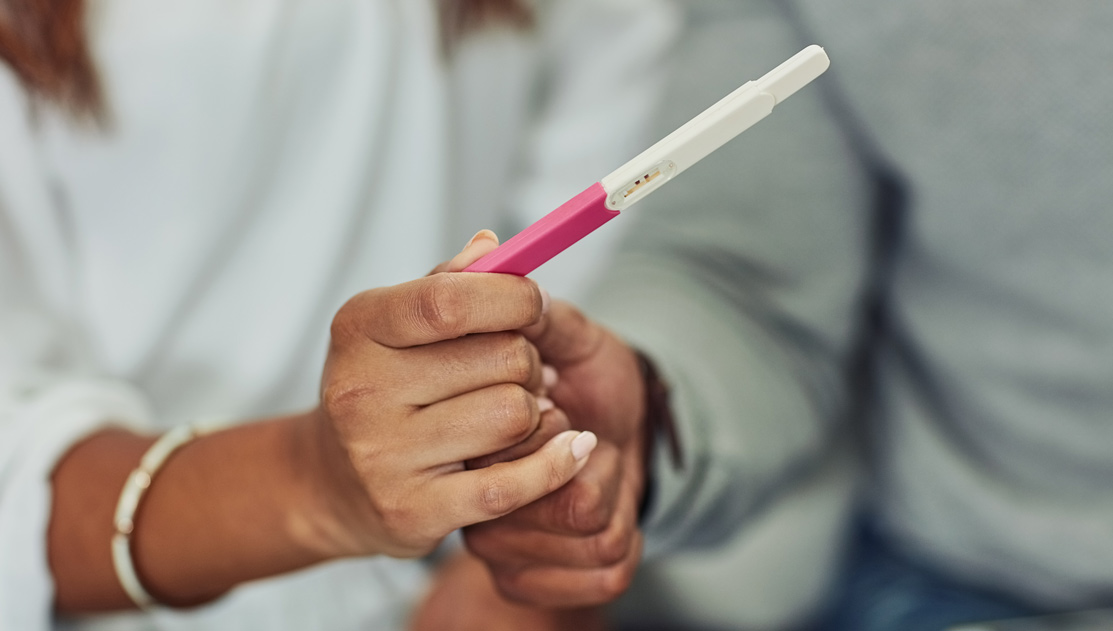High street pharmacist Superdrug is now offering at-home fertility tests for women. Dream come true or not so much? Everything may not be quite as it seems. Here we break it down.
What fertility tests are available?
There are five tests available:
- An AMH test measures anti-mullerian hormone (AMH), which is an indirect indicator of ovarian reserve (how many potential eggs you may have left).
- A progesterone test can indicate whether your ovaries released an egg in your menstrual cycle.
- An AMH and progesterone test combines the above two screenings.
- A pituitary profile test (FSH, LH & Prolactin) looks at whether the pituitary gland is generating the optimum hormone levels for proper function of the ovaries.
- A polycystic ovary syndrome (PCOS) test may be advisable for women with sporadic periods. Women who have PCOS have elevated levels of androgenic hormones which can affect the release of their eggs.
How does fertility testing work?
The Superdrug testing comes with an optional £5 online consultation to help women decide which fertility test(s) to take. Users can fill in a quick health questionnaire online which a medical team will review before indicating which test(s) the user should opt for. For the test itself, the woman will draw blood with a finger pinprick and then send their sample back to be screened in a lab.
So, what’s the issue?
Superdrug wants their online at-home service to offer women ‘greater control’ over their fertility and family planning. Dr Sara Kayat, Superdrug’s medical ambassador said: “For women that have been trying to get pregnant and not succeeding, or for those who are just curious about their fertility, easy access to blood tests may help provide answers and signpost them in the right direction.”
Here at The Fertility and Gynaecology Academy, we certainly believe knowledge is power when it comes to fertility. We also know the tightrope so many women walk, juggling career and family goals.
The problem is that limited knowledge can be a thorny thing. And limited knowledge without context can be a very thorny thing. As the British Fertility Society has warned in the past: “Many women with low ovarian reserve will conceive without any problems whilst others with a good ovarian reserve may take time and need fertility treatment…Tests showing a good ovarian reserve are reassuring but they by no means guarantee a baby and equally a poor or impaired ovarian reserve does not mean you will struggle and need fertility treatment.”
Much more reassuring testing includes screenings such as pelvic ultrasound to evaluate the egg reserve and the womb, and to eliminate any disorders that could affect fertility. Indeed certain conditions such as PCOS cannot be properly diagnosed without scanning. What’s more, approximately 30% of fertility problems are due to male factor infertility.
As we always say here at The Fertility and Gynaecology Academy, time is fertility. Quick tests without context or in-depth medical advice and thorough investigation could offer misleading reassurance, causing women to miss other fertility problems and lose time in the life of their fertility. By another token, decontextualised test results could lead a woman to hastily freeze her eggs when proper consultation with a specialist may have revealed another path to be more appropriate. If you’re going to change your plan or your behaviour, it’s best to do it based on detailed knowledge in context.
Dr Amin Gorgy, internationally renowned fertility expert and specialist Medical Director of The Fertility and Gynaecology Academy team says: “In expert fertility practise, we use markers like AMH levels to inform the level of hormones we give IVF patients. There is so much more to this than: fertile/not fertile. It’s not a yes/no equation – it’s far more intricate and nuanced than that. Low AMH doesn’t necessarily mean you can’t get pregnant, and high AMH could signal a problem like PCOS.
“We also need to consider women’s mental health in all this. It’s scary and disorientating to get these results and not know what they mean exactly or what to do about them.”
Here at The Fertility and Gynaecology Academy, our screening and consultation services are second to none. We can work with you face to face, to fully understand your goals and concerns. We provide exacting screenings with state-of-the-art equipment, leaving no stone unturned and helping you to plan clearly for the future.
To find out more about how we can help, call The Fertility & Gynaecology Academy now on 020 7224 1880 or email info@fertility-academy.co.uk.







